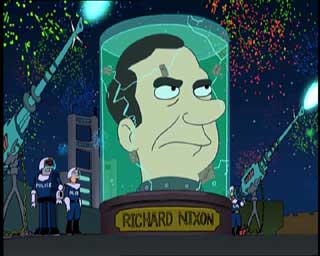Natural Law
In a previous post, I posed a brilliantly simple reconciliation of science and religion, but it turns out that I was beaten to the punch to the tune of 64 years with a nearly-identical thesis by none other than Albert Einsten.
For science can only ascertain what is, but not what should be, and outside of its domain value judgments of all kinds remain necessary. Religion, on the other hand, deals only with evaluations of human thought and action: it cannot justifiably speak of facts and relationships between facts. According to this interpretation the well-known conflicts between religion and science in the past must all be ascribed to a misapprehension of the situation which has been described.
In a speech given at The Conference on Science, Philosophy and Religion in 1941, Einstein traces this misapprehension to the reliance on what he terms a personal, anthropomorphized god, and the notion that religion needs a god, especially this sort of god:
During the youthful period of mankind's spiritual evolution human fantasy created gods in man's own image, who, by the operations of their will were supposed to determine, or at any rate to influence, the phenomenal world. Man sought to alter the disposition of these gods in his own favor by means of magic and prayer. The idea of God in the religions taught at present is a sublimation of that old conception of the gods. Its anthropomorphic character is shown, for instance, by the fact that men appeal to the Divine Being in prayers and plead for the fulfilment of their wishes.
[...]
To be sure, the doctrine of a personal God interfering with natural events could never be refuted, in the real sense, by science, for this doctrine can always take refuge in those domains in which scientific knowledge has not yet been able to set foot.
But I am persuaded that such behavior on the part of the representatives of religion would not only be unworthy but also fatal. For a doctrine which is able to maintain itself not in clear light but only in the dark, will of necessity lose its effect on mankind, with incalculable harm to human progress. In their struggle for the ethical good, teachers of religion must have the stature to give up the doctrine of a personal God, that is, give up that source of fear and hope which in the past placed such vast power in the hands of priests. In their labors they will have to avail themselves of those forces which are capable of cultivating the Good, the True, and the Beautiful in humanity itself. This is, to be sure, a more difficult but an incomparably more worthy task. (This thought is convincingly presented in Herbert Samuel's book, Belief and Action.) After religious teachers accomplish the refining process indicated they will surely recognize with joy that true religion has been ennobled and made more profound by scientific knowledge.
"A doctrine which is able to maintain itself not in clear light but only in the dark, will of necessity lose its effect on makind, with incalculable harm to human progress." This sounds strikingly similar to a Richard Dawkins polemic which I posted in June:
The creationists’ fondness for “gaps” in the fossil record is a metaphor for their love of gaps in knowledge generally. Gaps, by default, are filled by God. You don’t know how the nerve impulse works? Good! You don’t understand how memories are laid down in the brain? Excellent! Is photosynthesis a bafflingly complex process? Wonderful! Please don’t go to work on the problem, just give up, and appeal to God. Dear scientist, don’t work on your mysteries. Bring us your mysteries for we can use them. Don’t squander precious ignorance by researching it away. Ignorance is God’s gift to Kansas.
... Not quite as conciliatory as Einstein, but he makes the same point. Returning to Albert, I'm also a little surprised at the self-effacing bravado he demonstrates by saying
In their struggle for the ethical good, teachers of religion must have the stature to give up the doctrine of a personal God, that is, give up that source of fear and hope which in the past placed such vast power in the hands of priests. In their labors they will have to avail themselves of those forces which are capable of cultivating the Good, the True, and the Beautiful in humanity itself.
That's gutsy, but ultimately correct. Einstein's notion of religion is much broader than could be tolerated by most of today's Christians. He focuses on the larger, nobler pursuit and purpose, and basic necessity of religion, a nexal point it shares with science that necessitates both ideas. He's right.
Amazing.

